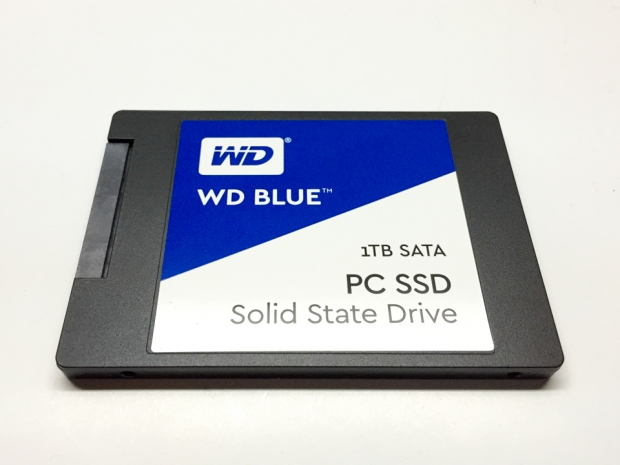Index
Iometer
For our Iometer test, we decided to test 4K random read and write workloads at 100 percent using all of the 1TB drive’s available storage space. We then applied a 10 percent over-provisioning on partition size to see if this would result in any random workload performance gains.
Over-provisioning is a technique that allocates a set amount of spare area on the drive to give the controller more room to perform garbage collection routines, often giving higher random read and write performance in some situations but making no difference in others. Some manufacturers employ this technique right out of the box, offering consumers 480GB and 960GB drives instead of the full 500GB and 1TB capacities.
More specifically, we wanted to test over-provisioning with the WD Blue 1TB to see if it provides any performance benefit on top of the drive's use of multi-stream commands, which reduce write amplification over traditional garbage collection methods.
Iometer (4KB, 100% read) – No added over-provisioning
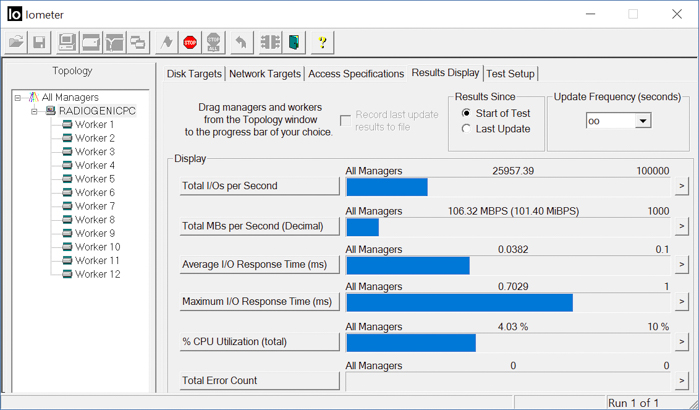
The default results for 4KB random reads at 100 percent show 106 total MB/s and 25,957 total IOPS at 0.03 percent average response time, with 4.03 percent CPU utilization during this test
Iometer (4KB, 100% read) – 10 percent over-provisioning
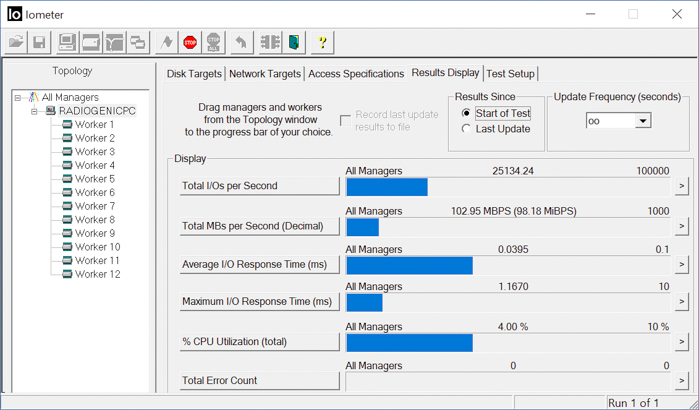
The 10 percent over-provisioned results show 102.95 total MB/s and 25,134 total IOPS at 0.04 percent average response time, with 4 percent CPU utilization during this test.
Iometer (4KB, 100% write) – No added over-provisioning
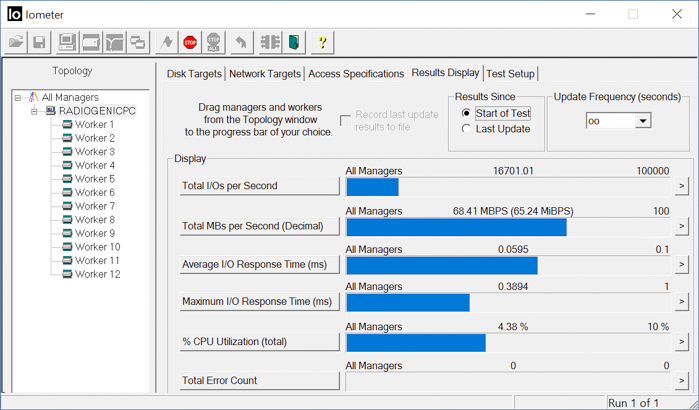
The default results for 4KB random writes at 100 percent show 68.41 total MB/s and 16,701 total IOPS at 0.06 percent average response time, with 4.38 percent CPU utilization during this test.
Iometer (4KB, 100% write) – 10 percent over-provisioning
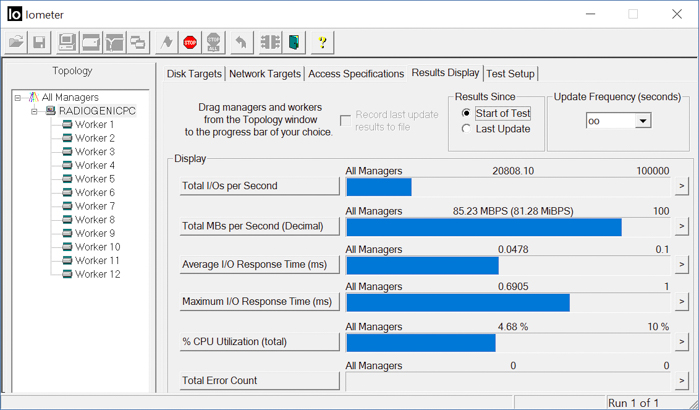
The 10 percent over-provisioned results show 85.23 total MB/s and 20,808 total IOPS at 0.05 percent average response time, with 4.68 percent CPU utilization during this test.
According to the results, freeing up 10 percent of partition space on the drive can improve 4K random write performance by about 12.5 percent, which isn’t too high of a performance margin but can still help for those willing to shed about 95GB of free space for the sake of sustained small file workloads. Of course, this would require a very specific usage scenario and does not apply to everyone.

